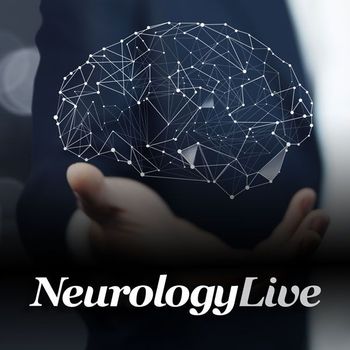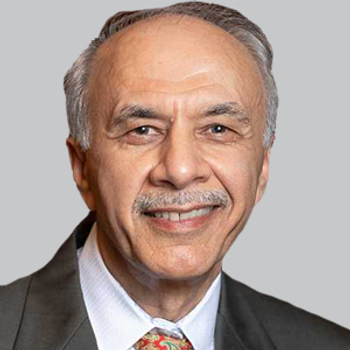
Investigators identified practical guidelines for NMOSD management, emphasizing patient communication and targeted therapies, while providing recommendations for personalized approaches.

Isabella Ciccone, Content Associate, NeurologyLive®, has been with the team since September 2022. Follow her on X @iciccone7 or email her at [email protected]

Investigators identified practical guidelines for NMOSD management, emphasizing patient communication and targeted therapies, while providing recommendations for personalized approaches.

Aruna Bio's investigational treatment, AB126, is now set for a phase 1b/2a clinical trial targeting acute ischemic stroke, anticipated to begin in the first half of 2024.

Takeda's Hyqvia is the only FDA-approved combination of immunoglobulin and hyaluronidase, which makes it a facilitated subcutaneous immunoglobulin infusion, for patients with chronic inflammatory demyelinating polyneuropathy.

The newly FDA-approved AI-powered software platform BrainSee utilizes brain MRI and cognitive assessments to reportedly predict the progression of amnestic mild cognitive impairment to Alzheimer disease in 5 years.

A recent open-label study focused on vagus nerve stimulation therapy's effects on patients with narcolepsy revealed a specific and notable improvement in daytime sleepiness.

Despite lack of efficacy in the phase 3 ADORE trial, the oral formulation of edaravone demonstrated safety and tolerability during a 48-week daily dosing period.

A phase 2 trial showed the effectiveness of a home-based, full-body movement exergaming program for Parkinson disease compared with control.

A case series highlighted the significance of using multimodal imaging, such as spectral domain OCT, in detecting ocular manifestations in SCA type 7.

Cala Health's transcutaneous afferent patterned stimulation demonstrated significant efficacy in patients with essential tremor, as evidenced by positive outcomes in multiple clinical studies.

A recent analysis revealed patients with neuromyelitis optica spectrum disorder exhibited significantly lower vitamin D levels, suggesting a potential association with impaired immune tolerance in the disorder.

Beth McQuiston, MD, RD, neurologist and medical director at Abbott, discussed the latest developments in traumatic brain injury, such as Abbott’s lab-based blood tests, as well as upcoming publications and guidelines to help with diagnosis.

A recently published study showed patients with Friedreich Ataxia treated with medications that enhanced mitochondrial function demonstrated improvement in clinical outcomes and left ventricular mass index.

A recent study identified specific risk factors influencing readmission odds in patients with neuromyelitis optica spectrum disorder, contributing valuable insights for predictive algorithms and improved patient outcomes.

Patients with neuromyelitis optica spectrum disorder experienced poor sleep quality, indicating a significant contribution to the overall disease burden.

A recent study revealed that tandospirone citrate exhibits more positive effects in alleviating depression/anxiety and cerebellar ataxia symptoms in patients with multiple system atrophy-cerebellar subtype compared with escitalopram oxalate.

Catch up on any of the neurology news headlines you may have missed over the course of January 2024, compiled all into one place by the NeurologyLive® team.

A recent study revealed that susceptibility-based imaging can effectively differentiate pediatric-onset multiple sclerosis from pediatric myelin oligodendrocyte glycoprotein antibody-associated disease.

An international consortium of clinicians recommended evidence-based guidelines for intracerebral hemorrhage, in which early intervention, bundled care, and time-based metrics substantially improve neurological outcomes.

Assessments on PGN-EDODM1's safety, transcript splicing correction, and clinical outcome measures data at the 5 mg/kg dose level from trial is expected this year.

Catch up on any of the neurology news headlines you may have missed over the course of December 2023, compiled all into one place by the NeurologyLive® team.

A recent study on narcolepsy type 1 and central disorders of hypersomnolence showed that patients exhibited decreased learning abilities in response to negative feedback, suggesting a link between altered decision-making and vigilance disruptions.

Take a look at the conferences in neurology that NeurologyLive® will cover for news in 2024.

Sami Khella, MD, professor of clinical neurology at the Perelman School of Medicine at the University of Pennsylvania School of Medicine, shared his reaction to the approval of eplontersen for the treatment of hereditary transthyretin-mediated amyloid polyneuropathy.

A new study revealed daytime continuous polysomnography as a reliable and easily accessible diagnostic tool for identifying narcolepsy type 1 among pediatric patients.

With the approval, eplontersen becomes the first approved treatment for patients with hereditary transthyretin-mediated amyloid polyneuropathy that can be self-administered via an autoinjector.

Researchers have successfully grown norepinephrine neurons from stem cells, which are critical for regulating various bodily functions, offering new insights into neurodegenerative diseases such as Alzheimer and Parkinson.

According to a recent study, investigators found no reports of moderate or severe adverse events with a high dose of nicotinamide riboside therapy in patients with Parkinson disease.

In newly released data, AMT-130 showed a manageable safety profile at both low and high doses in patients with Huntington disease, supporting the gene therapy's continued development.

As part of our monthly clinician spotlight, NeurologyLive® highlighted headache medicine expert Amaal J. Starling, MD, FAHS, FAAN, associate professor in the department of neurology at Mayo Clinic College of Medicine.

A recent systematic practice review outlined pragmatic recommendations to enhance palliative care for patients with Parkinson disease and their caregivers, emphasizing integration, coordination, and personalized care plans.